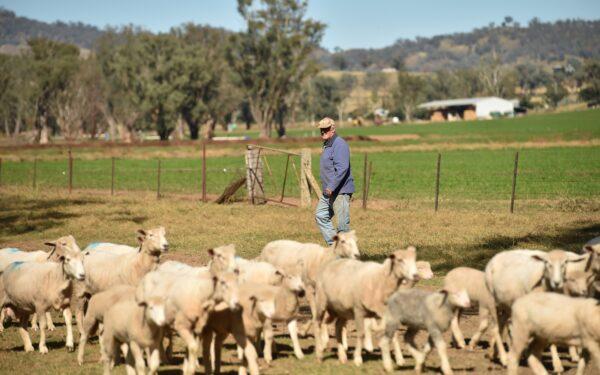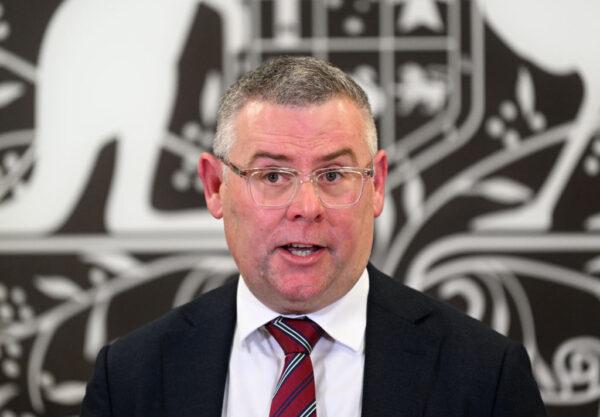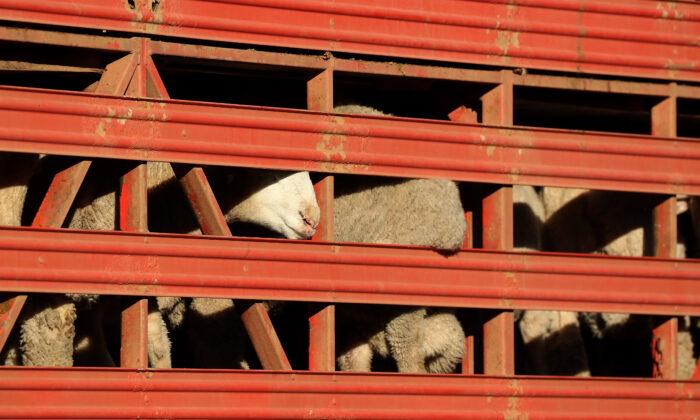Australian farmers have called on the federal government to abandon an election promise that would ban all live sheep exports by sea.
This comes as the Australian government has opened a consultation to establish a time frame and a necessary process for implementing the ban.
In an interview with the Australian Broadcasting Corporation, Australian Livestock Exporters’ Council CEO Mark Harvey-Sutton said the ban was wrong and that the industry was disappointed with the government.
“This policy has been driven by an animal activist agenda.”

Harvey-Sutton also warned that the ban would result in the unemployment of 3,500 people in Western Australia, a decrease in the sheep industry’s overall value and damaged relationships with key trading partners who relied on Australia for food security.
Australia is a major exporter of live sheep despite significant drops in trade volumes during the COVID-19 pandemic.
Agriculture Groups Oppose Live Sheep Exports Ban
Following the consultation’s announcement, the National Farmers’ Federation (NFF) said it stood with 24 other peak agricultural bodies and farmers across Australia in opposing the policy.“We are an export-orientated industry. If the government starts cancelling export markets, this sends a seriously bad message to farmers.”
Mahar also noted that the policy was based on an outdated campaign by welfare activists who ignored the significant improvements in animal welfare brought by new infrastructure and practices in the industry.
“If Australia steps back as a global leader in this trade, others with lower standards stand ready to take our place,” He said.
“A phase-out would be a serious retrograde step for animal welfare.”
Consultation on Phasing Out Live Sheep Exports
On March 3, the federal government announced that a consultation on cancelling the live sheep trade was underway.It said an independent panel chaired by Phillip Glyde, the former CEO of the Murray Darling Basin Authority, would lead the consultation process.
The panel includes Western Australian agriculture expert Sue Middleton, former RSPCA (Royal Society for the Prevention of Cruelty to Animals) Australia boss Heather Neil, and former Labor minister Warren Snowdon, an advocate for live cattle exports.
The consultation phase is expected to take six months, and the panel is due to submit a report to the government by Sept. 30.
Agriculture Minister Murray Watt said the federal government was carrying out an election promise.
“What we’re doing is implementing an election commitment that we’ve taken to not just one election but to two,” he said in comments obtained by AAP.
“We want to do it in an inclusive way through good consultation with people. We’re not going to rush it.”

While the policy will not come into effect during the current government term, the minister said he wanted to ensure the ban was implemented orderly.
“I am also conscious that the wider Australian community is interested in the phase-out, including those that want to see animal welfare maintained and improved.”
Regarding compensations, Watt said the government had not made any decision on what affected farmers would receive when the policy took effect.
“I’m not sure that we necessarily are facing a situation where farmers will lose their business or go out of business,” he said.
“Any issues around compensation, structural adjustment, and those kinds of things are exactly the kind of things that we’re going to be asking the panel to give us advice on.”
Meanwhile, the RSPCA and the Australian Alliance for Animals welcomed the consultation, saying it was an “appropriate and sensible move.”
“An independent panel, at arms-length from government, with a diversity of expertise–including animal welfare expertise, will be well-placed to advise the government on how best to achieve a phase-out.”
The RSPCA also reiterated its call for the ban to be legislated before 2025, when the current parliament’s term concludes.





